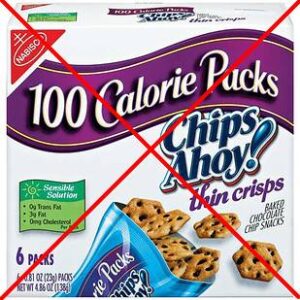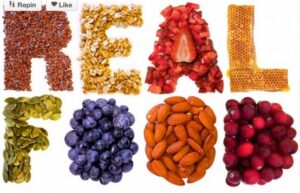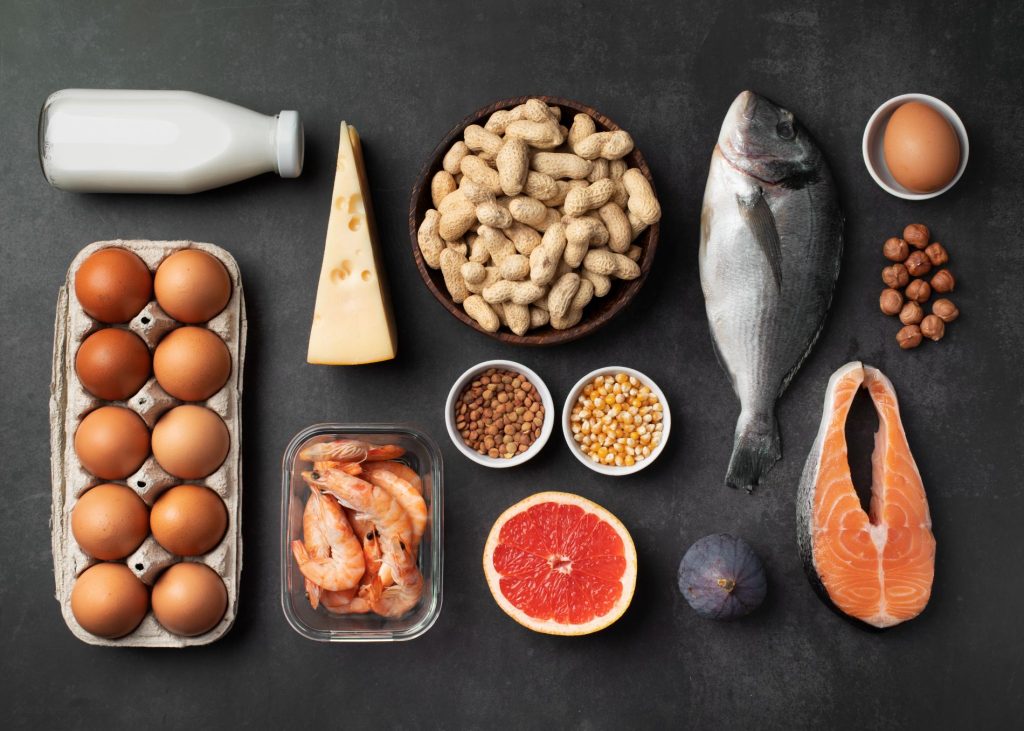I’m sure by now you’ve heard the term “clean eating.” Patients often ask, “What exactly is it?” I’m writing this blog to clear up any questions and confusion you might have surrounding all this clean eating business. The following guidelines are ways to eat a very strict clean diet. Please understand people eat clean at different levels. Some eat 100% clean all the time and eliminate everything processed while others are not as strict and have a goal to eat clean, say, 75% of the time. You are the only one who knows what will and will not work for you and your family. Take the information provided here and adapt your lifestyle around it. Remember to give yourself time to adjust your eating habits. If you currently eat most meals out right now, don’t try to go 100% clean eating tomorrow. This is unrealistic and not sustainable for a true lifestyle change.
Simply put, clean eating is eating foods in their most natural form. This means eliminating any processed food, especially those that contain preservatives, chemicals, additives or anything artificial. Follow the guidelines below to make sure you are getting the cleanest of foods Mother Nature has to offer!

The cleanest way to eat these is to grow your own. Obviously, we don’t all have the means to do so, so try to buy organic produce. If you can’t afford to buy all produce organic, check out the 2014 Clean 15 and Dirty Dozen lists. Try to buy those on the Dirty Dozen list organic as often as you can, as these have the most pesticides. You can find these lists here.
Eat Whole Grains
Whole grains are full of fiber, nutrients and protein. Stay away from processed refined white flour and rice. The side hull, bran and germ contain fiber and are not removed in whole grains as they are with white rice. Whole grains are also rich in thiamine, calcium, potassium, magnesium and selenium. Try quinoa, wild rice, brown rice, oats and buckwheat. Remember, buying brands such as Uncle Ben’s 90 Second Brown and Wild Rice Medley is not eating clean-it contains 26 ingredient! It is impossible to cook an unprocessed whole grain in 90 seconds. Whole grains typically require a much longer cooking time than its processed counterparts.
Eat Beans, Nuts and Seeds
Again, these are full of fiber and other nutrients essential to a healthy diet. Make sure you are buying dried beans and soaking them overnight to rehydrate them rather than buying them canned. Canned beans are very high in sodium because salt is the main preservative used. Watch out for salt (often MSG) and sugar coated nuts and seeds. Buy raw nuts and prepare them yourself to your tasting. Read about the health benefits of some of your favorite nuts, here.
Eat Organic Grass-fed Beef, Free Range Chicken and Turkey, Cage Free Eggs, Wild-Caught Seafood
These animal products do not contain any growth hormones or antibiotics which is essential to clean eating.
Drink Plenty of Water
Water is the number one beverage of choice when trying to eat (and drink) clean, with zero calories and sugar. Try to drink at least 2 liters of water a day. Dehydration can often times be mistaken for hunger. Herbal teas (NOT pre-made Lipton/Arizona or sweet tea) are also considered clean as long as they do not contain artificial or natural flavors (these are basically the same thing). Naturally flavor your own tea with fresh organic fruit and spices. If you must have your morning coffee, try to stick to one cup a day and drink it black.

When companies remove fat or calories from a food they need to fill it with sugar, chemicals, additives and other fillers to keep the same taste and texture. Using real ingredients not only tastes better but is better for you as well. Some low fat yogurts have twice as much sugar as the original yogurt.
Reduce or Eliminate Added Sugar
Make sure your sugar intake is from natural sugars only. Your sugar should come mostly from fruits and vegetables. If you are using added sugar, make sure it comes from raw organic honey, agave nectar or maple syrup. But be careful, one tablespoon of honey has 17 grams of sugar! Keep in mind women should only intake 20-25 grams of sugar a day and 37 grams a day for men. No artificial sweeteners or high fructose corn syrup!
No Fast Food or Frozen Dinners
Fast food and frozen/prepackaged meals are high in calories, fat, sodium and sugar but low in vitamins, nutrients and fiber. These “food-like products” are full of chemicals and artificial ingredients that we weren’t meant to digest. Do you know what tertiary butylhydroquinone is? Me neither, but it’s in your chicken nuggets. Even Subway and salads at these restaurants aren’t “clean.” Subway sandwiches contain chemical additives, artificial colors, refined bleached flour, preservatives, nitrates and refined sugars. Eat fresh, huh? Read about some seemingly healthy salads from popular fast food chains and restaurants that can sabotage your clean eating, here.
Additional Tips to Remember:
- If it comes from a bottle/jar, box, can or bag, the chances of it being clean are unlikely.
- Avoid most foods that have a nutrition label. Think about your fruits, vegetables, meats and eggs. Those usually don’t have a nutrition label. For packaging purposes, a bag of almonds/quinoa/black beans/lentils, etc. will have a nutrition label. If there is a nutrition label, always look at the ingredients.
- The more ingredients listed, the more processed it is. Stick to ONE ingredient foods only.
- If multiple ingredients are listed, make sure you know what each ingredient is and that you can pronounce it. If an ingredient sounds like a chemical, it is a chemical. Stay away!
- If man made it, don’t eat it. Eat foods from nature only. Basically, if it comes from the ground or a tree, it’s a good thing!
- Don’t eat anything that has a TV commercial.
- Buy products that are non-GMO
- Cook everything yourself and in bulk whenever you can!
Now you might be asking yourself, why should I eat clean? What’s the harm if I don’t?
Chemicals, preservatives, additives, hormones, antibiotics, etc. are very irritating to the digestive tract which causes inflammation. This inflammation can prevent you from absorbing your vitamins and nutrients which play a BIG role in metabolism. If you aren’t absorbing your vitamins and nutrients, you are starving at the cellular level (yes, your body thinks it is starving!). So when you eat, your body wants to store fat rather than burn off the food you just ate. Plus, to begin with, processed foods tend to be low in vitamins, nutrients and fiber but high in fat, sugar, salt and calories.
Click here for tips on how to eat healthy on a budget.
Happy Clean Eating!






